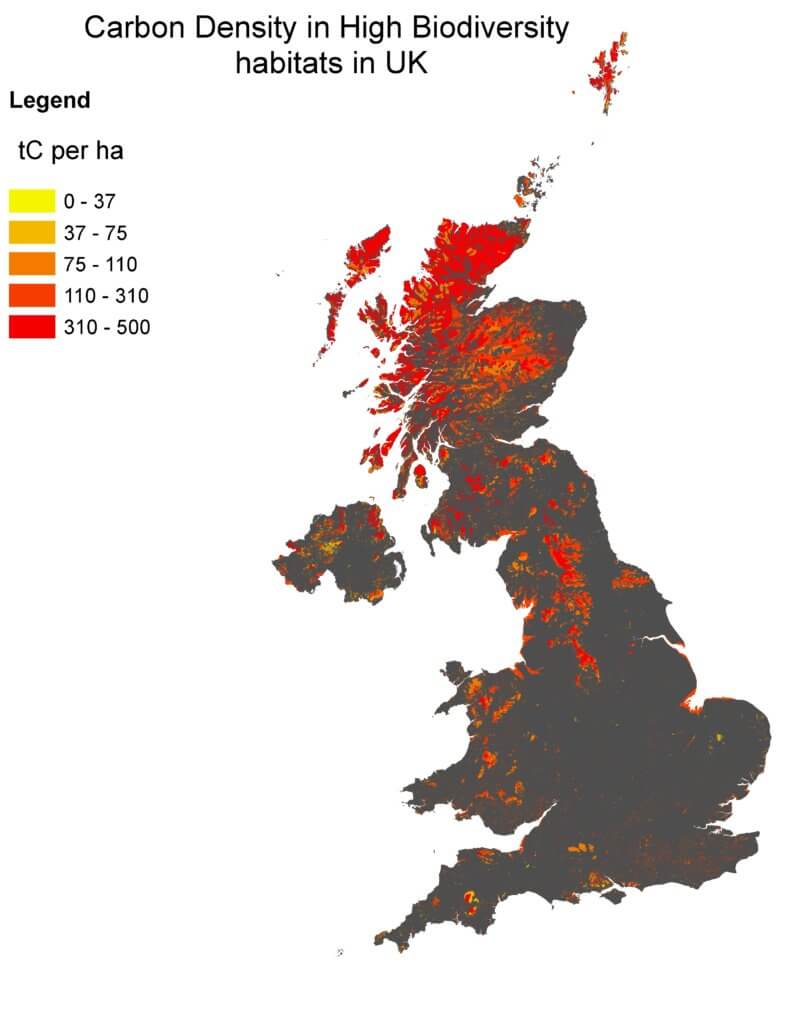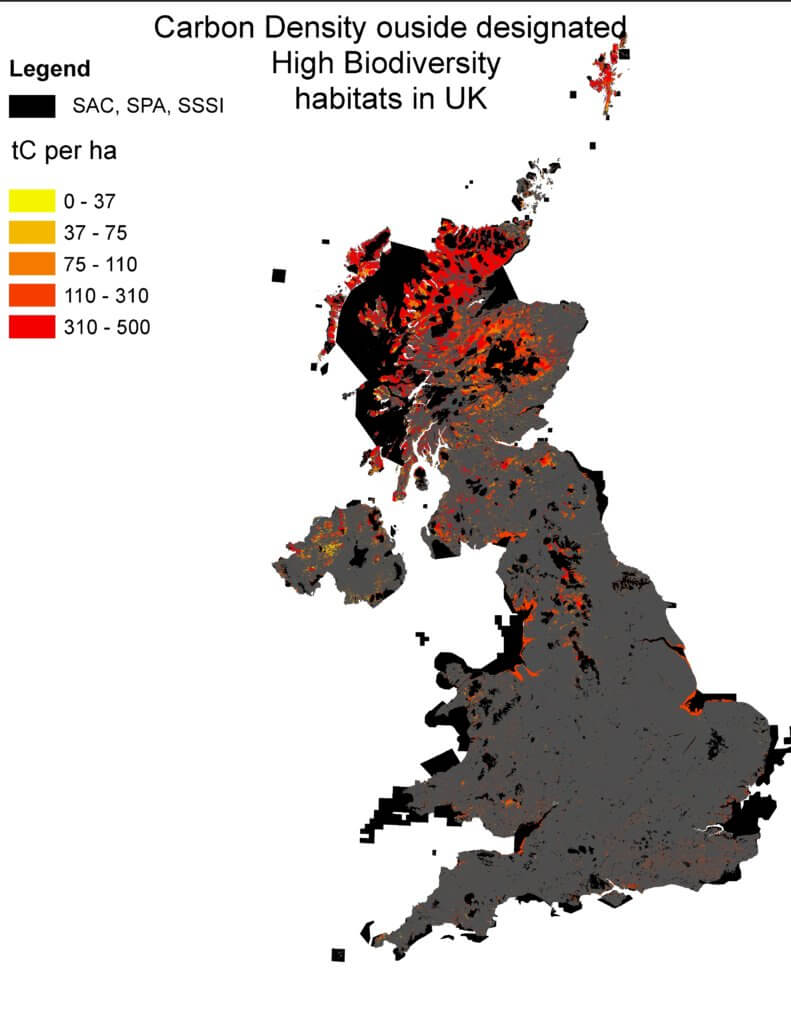Protecting the best places for nature will fight the climate crisis
New maps reveal that the best places for nature also hold over two-gigatons of carbon dioxide, the equivalent of all of the greenhouse gases the UK generates in four years
The Governments of the UK must take urgent action to protect and restore these sites as many are in poor condition, unprotected, and haemorrhaging carbon
By mapping and putting much needed legal protections in place for all carbon and nature rich areas the Governments of the UK would benefit from a natural climate solution, that will help us to save nature and tackle the climate crisis
For the first time everyone can see the best places for nature are also the best places to tackle climate change in the UK. Marking World Environment Day the RSPB has released a new set of maps that reveal there are gigatons of carbon stored in the most important places for our plants and animals.

These nature-rich landscapes play a vital role in supporting the UK’s plants and animals and storing carbon. However, scientists at the country’s largest conservation charity are concerned that two thirds of this carbon is in locations that are unprotected.

And we should all be concerned that the poor condition of many of these places – even in protected areas – means that they are haemorrhaging carbon into the atmosphere, instead of storing it safely in the ground. In England alone, it’s estimated that damaged upland peatlands release the same amount of CO2 into the atmosphere as 140,000 cars annually, instead of continuing to gradually increase their stores of carbon.
The RSPB is urging for the protection and restoration of all these areas, to make an important step forward to address the current crises for both nature and climate. The charity is calling on Governments of the UK to put in place the protections needed to ensure these important spaces are not abused, exploited or damaged, but rather protected, nurtured and restored.
Martin Harper, the RSPB’s director for conservation said, ‘We need urgent action to protect nature in the UK. Our natural world is in crisis with over half of our species vanishing from our skies, rivers, towns and countryside, and to the tackle the climate crisis we must achieve net-zero carbon emissions in just three decades. So, protecting the spaces that are beneficial for both species, wildlife and store carbon seems like an easy win for everyone.‘.
The project began by mapping all of the best places for nature in the UK; the priority habitats for our wildlife and plant life. The RSPB then applied carbon data for each habitat, including the top soil layer. Analysing the plants and just 30cm of topsoil on these areas revealed how much carbon is locked up in the land and vegetation. This led to the staggering discovery that these areas hold carbon equivalent to over two-gigatons of carbon dioxide, the equivalent of all of the greenhouse gases the UK’s industry, transport and power sector would generate in four years.
Worryingly, only 34% of the best places for nature and carbon are protected. What’s worse, the Government’s own statistics show that over 40% of these spaces, that should be protected were not in good condition, and the health of many carbon rich landscapes are not being monitored or cared for. This means sites in poor condition are pouring carbon into the atmosphere, rather than storing it. Without monitoring and commitments to improve these areas there are threats to both the wildlife and carbon stores from practices such as burning, draining and grazing. We have to reverse this if we are going to realistically curb climate change and bring back wildlife.
Martin Harper continued, ‘There is a real opportunity to use these maps to protect the things that are important to us all. And this is the perfect example of a natural solution helping us to save nature and tackle the climate crisis. These maps prove that the spaces that are most important for our natural world are also rich in carbon. But they must be protected at a local and national level to succeed in curbing climate change, rather than contributing to it.
We need politicians across the UK to not just recognise the value of these areas but secure their future by delivering appropriate designated legal protections. Burning peat and other damaging practices must end, and we must to focus on the steps needed to restore and enhance our land for the benefit of our natural world and all of us.‘.
The RSPB is calling on the governments of the UK to complete the work needed to map and recognise all carbon and nature rich areas so they can be integrated into national land plans and initiatives to secure their protection. This work can then support the urgent need for policies that prioritise and drive the turn-around of the poor ecological condition of the carbon and nature rich areas across the UK.
To find out more about this story visit: https://arcg.is/098uiD
Later this month the RSPB’s supporters will be joining thousands of people at The Time Is Now mass lobby in Westminster as people from across the UK talk to MPs about the UK’s contribution to addressing the climate emergency and crisis facing nature, asking them to commit the UK to a net zero emissions target and to bring forward a powerful Environment Bill that restores nature.
And the RSPB is backing the petition calling on politicians and decision makers to restore nature on a massive scale to help stop climate breakdown https://petition.parliament.uk/petitions/254607
ENDS
[registration_form]
Interesting stuff and I would add that the areas not highlighted on the map need to have a plan to increase the area of carbon and nature rich areas, as well as prtceting those we already have. As a side issue, I was amazed to see that the piece had two “dislikes” and assumed they were errors – then I remembered that a certain Mr. & Mrs. Trump are in the country…
I think the dislikes show that this blog is important enough to be read by people on the other side of the argument. Know your enemies and all that. Well done Mark!